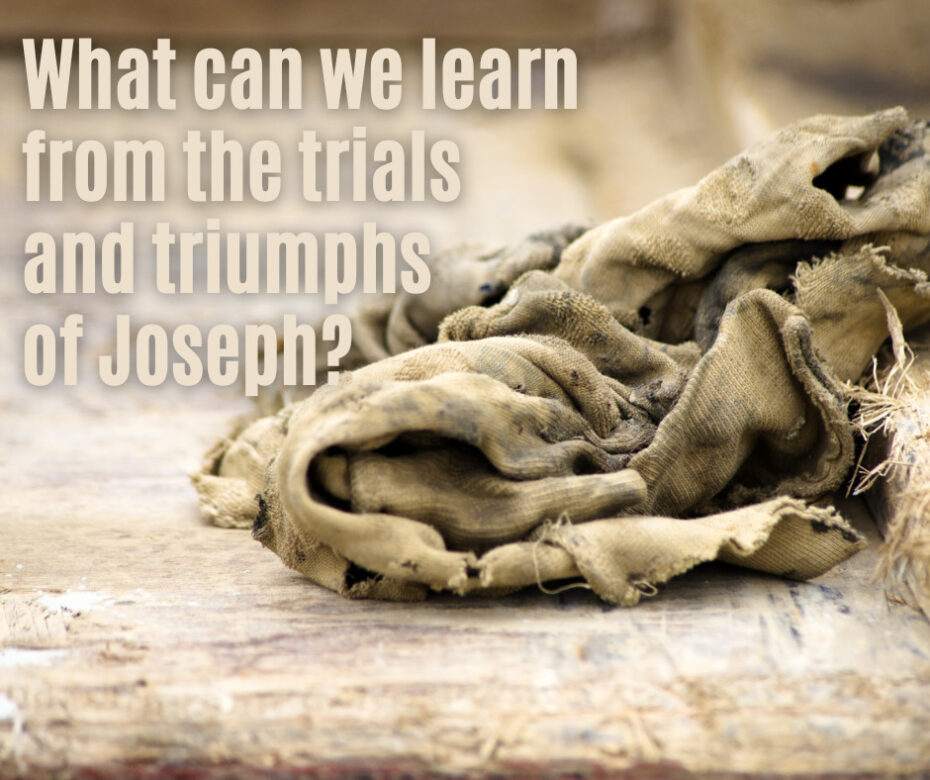The life of Joseph, recorded in Genesis 37–41, is an exciting narrative, full of danger, deception, dreams, and more. It’s an epic story, perfectly orchestrated to show the sovereign hand of God in His preservation of the nation of Israel and of one of His faithful servants.
Several themes recur throughout the narrative of Joseph’s life. In chapter 37 we are told that Jacob sends Joseph to check on his brothers and their flocks. Joseph is given a job and faithfully goes out to do what his father has asked of him. At one point in his journey, Joseph can’t find his brothers. He could easily give up and go home. However, he continues until he finds them. How is he repaid for his perseverance? Moses tells us in vv 23-24:
So it came to pass, when Joseph had come to his brothers, that they stripped Joseph of his tunic, the tunic of many colors that was on him. Then they took him and cast him into a pit. And the pit was empty; there was no water in it (emphasis added).
Joseph is rewarded for his efforts in two ways: His tunic is taken, and he is thrown into a pit. His brothers will later take the tunic and use it as false evidence of his supposed death. He is then sold into slavery.
Fast forward to chapter 39. Joseph has been sold as a slave in Egypt. He has risen in rank to become overseer in Potiphar’s household. He is a good servant and does his work diligently, bringing prosperity to Potiphar and his home. Unfortunately, Potiphar’s wife begins to “cast longing eyes on Joseph” (v 7). She attempts to seduce Joseph, but he refuses, saying that he will not sin against God (vv 8-9). Once again, Joseph is faithful and obedient, not only to Potiphar, but to God as well. However, as before, Joseph is, for his efforts, rewarded with suffering. He flees, leaving his cloak in the arms of Potiphar’s wife who, like Joseph’s brothers, uses the clothing to support a false report. This results in Joseph’s being cast into prison. For the second time, his tunic is taken, and he is thrown into a pit. Seybold draws out these themes regarding Joseph, saying:
He is a favorite of the head of the household (Jacob, Potiphar, prison-keeper) over others like himself, whether brothers, slaves, or prisoners, and he is in a position of dominance over the others, whether he is checking on his brothers for his father (37:12-14), presiding over the other slaves of Potiphar (39:4-5), or overseeing the other prisoners (39:21-23)…The robe and the cloak…indicate first his elevation and then the stripping away…and the pit/prison is the place where Joseph is both condemned and saved (D. A. Seybold, “Paradox and Symmetry in the Joseph Narratives,” in Literary Interpretation of Biblical Narratives, 63).
Similar themes appear in the account of Joseph’s time in prison. Joseph is hard-working but is forgotten and left in prison despite his service. Over and over again, Joseph is shown as faithful and obedient. Sadly, the result of his faithfulness is hatred–first by his brothers, then by Potiphar’s wife. And his faithfulness is later met with indifference on the part of a prisoner whom he helps. For Joseph, obedience comes at great personal cost.
This echoes the teachings of Christ in the NT (e.g., Mark 8:34-38; Luke 14:25-33). Following the Lord is costly. It can cause family, friends, and certainly the world, to hate you. However, to follow the Lord, to be His faithful servant, also comes with the guarantee of great reward (Matt 5:11; 2 Tim 2:12). Those who suffer for Christ will reign with Him in the coming kingdom (Rom 8:17b). Those who serve Him will ultimately be repaid for their efforts (Luke 14:14). Joseph illustrates these profound truths.
After his time in prison, Joseph becomes second in command over all Egypt (Gen 41:37-45). Pharaoh sets him over his whole kingdom. It is here that we are told of a third robe in the life of Joseph.
Then Pharaoh took his signet ring off his hand and put it on Joseph’s hand; and he clothed him in garments of fine linen and put a gold chain around his neck. (Gen 41:42, emphasis added).
Far better than his coat of many colors, far better than his slave’s tunic, Joseph is ultimately given royal robes and exalted. This is also reminiscent of NT teachings. For example, we are told in Revelation that believers will be dressed in white linen, and that these robes represent the “righteous acts of the saints” (Rev 19:8). In the coming kingdom our clothing will, in some sense, represent what we have done for the Lord. Just as Joseph was exalted, so will faithful believers be in eternity.
The truly miraculous thing about the story of Joseph is that all believers have the opportunity to follow in his footsteps. If we are faithful and obedient servants, we too are guaranteed to rule, not over Egypt, but over an eternal kingdom. We, too, can receive robes that reflect our service to the King of kings. As we serve the Lord today, let Joseph be a reminder of the Lord’s faithfulness and of the promise of reward in the kingdom to come.

